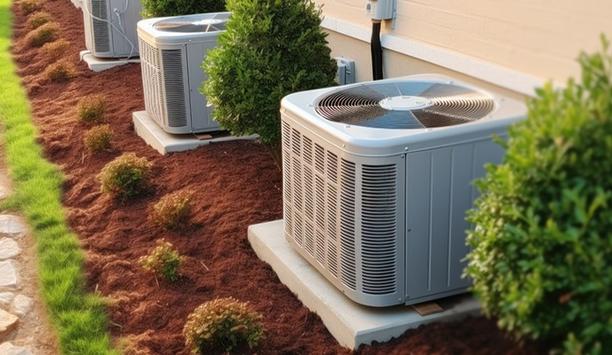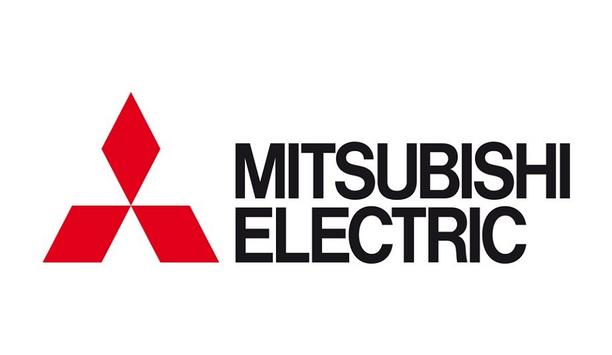Excessive heat is a byproduct of data center servers and one that presents both economic and environmental challenges. Data centers are one of the world's fastest-growing contributors of CO2 emissions, for example, currently generating well over 100 million tonnes of CO2 globally per annum. This roughly equates to half of the global aviation emissions, 30 million cars or 36 coal-fired power plants. Currently, data centers waste over 200TWhrs of energy annually, on a global scale.
Sustainable electronic cooling solutions
Nexalus is an Irish company that provides innovative and sustainable electronic cooling solutions for data centers. Combining applied thermodynamics with thermal-fluid science and engineering, Nexalus’s hot-water cooling systems integrate with electronics that produce excessive heat, to cool, capture and reuse this thermal energy, while also increasing efficiency and reducing costs.
Founded in Cork, Ireland, with international strategic development and manufacturing partners, Nexalus provides sustainable electronic cooling solutions, with patented technology that prioritizes not only performance and profit but also the planet, according to the company.
Using sealed server technology
Nexalus simultaneously solves data center heat and energy problems by integrating liquid cooling directly into its “sealed server” technology. When one seals the server and then deals with the heat and energy management problems right at the source (i.e., in the individual server), then the larger energy problem becomes modular, scalable, and also becomes more to do with energy transport, which is comparatively straightforward.
A key goal at Nexalus is to enable industries to reach and exceed both their economic and environmental targets simultaneously turning heavy electrical energy users into organizations that are generating clean energy.
Their domestic market of Ireland alone is Europe’s largest data center market, with 66 active data centers and 29 currently in development. The capital, Dublin, is home to four of the leading five hyperscalers.
Heat and energy management
The key to that success is the use of our patented jet impingement and sealed server technology"
“With our foundations firmly rooted in both science and engineering, we set out to explore the thermal issues affecting the market, namely ‘heat problems’ and ‘energy problems,’ and to utilize the untapped ‘greener’ potential of this ever-growing industry,” says Anthony Robinson, Co-Founder and Chief Science Officer at Nexalus.
“Our ability to recover, and also to convert this otherwise wasted heat into a clean energy asset, creates the perfect circular economy,” says Robinson. “Key to that success is the use of our patented jet impingement and sealed server technology.” He explains: “Traditional cooling companies use air; however, this medium has reached its limitations. To close the circular economy, the currently wasted thermal energy from data centers needs to be redeployed. This cannot be achieved using air due to the poor thermal physical properties of this fluid.”
 |
| To close the circular economy, the currently wasted thermal energy from data centers needs to be redeployed |
Recovering heat into a liquid stream
Water has superior thermal properties enabling up to twice the thermal design power of a CPU and the transport of x4, 000 the thermal energy per unit volume as compared with air.
In Nexalus’s Combined Heat & Compute (CHC) data center server technology, each server is thermally isolated from its surroundings, and heat is recovered from the high-powered processors via jet impingement Enflux/Vortex (CPU/GPU) water-cooled direct contact heat exchangers.
All of the lower-powered supporting electronic components (RAM, VRM, power supplies, storage, etc.) are air-cooled with a heat exchanger, the NXQ, which itself is a heat recovery device. All of the heat generated within the sealed server is recovered into a liquid stream, which is easily transported for use elsewhere.
Facilitates economies of scale
The solution works for a single rack in a hotel or a mobile cryptocurrency container or a hyperscale data center
“The importance of modularity cannot be stressed enough,” says Robinson. In the data center environment, being pluggable and hot-swappable allows not only for ease of installation and maintenance but facilitates economies of scale. The solution works for a single rack in a hotel or a mobile cryptocurrency container or a hyperscale data center.
This itself then creates an equally scalable and broad energy market, where the heat, being at temperatures ideal for comfort, space, and process heating, can be deployed into residential, industrial, and food production sectors, and this mitigates the use of fossil fuels and accompanied generation of greenhouse gas emissions.
Solving heat-energy problems
“The problems we are trying to solve bridge between what can be considered on one side ‘Heat’ problems, and the other side ‘Energy’ problems,” says Robinson.
Heat problems are endemic for two reasons. Firstly, because chip manufacturers are packing more functionality and power into increasingly smaller devices; this concentrates the heat to such an extent that old-school cooling techniques just don’t work. And secondly, because electronic packages, such as servers and home desktops, are continuously becoming more compact, more highly integrated, and themselves more powerful; old-school cooling technology just doesn’t fit anymore.
A bridge between heat and energy
Energy problems rear their head when you have hundreds, to tens of thousands of electronic components operating in one place. Integrating power-hungry computing into electric vehicles, for example, is an energy problem. Data centers that work at the scale of MegaWatts are an energy problem.
Now, when trying to come to grips with the size of this energy problem, imagine hundreds, to tens of thousands of individual heat problems adding up, says Robinson.
Nexalus is innovating in a space where heat and energy problems are not considered separate. “As scientists, we are quite comfortable working on the tough thermal-fluid science problems, right down to the microscale of the chips,” says Robinson. “As engineers, we are equally comfortable working on the tough data center energy problems. Having the capacity to develop technologies that exist at both ends, as well as bridging between them, is where Nexalus innovation happens.”
Thermal science
The solution merges thermal science with a closed-loop hot-water cooling system
Some people hear liquid cooling and immediately think of immersion. Nexalus is not immersion cooling – they have removed the need to submerge a server in liquid. Their elegant solution is born from an understanding of thermal science with a closed-loop hot-water cooling system, using patented jet impingement and sealed server technology.
Heat and energy recovery
While some air and immersion cooling companies are beginning to explore heat recovery and reuse, another big misconception is the success to date in this space - creating a hot water asset ready for immediate use. Currently, Nexalus says they are the only company to provide 80% heat recovery to data centers and ability to lift the thermal energy at a water temperature suitable for reuse – between 40°C to 60°C – which means that the historically wasted CPU thermal output can be redeployed for immediate use to residential, industrial and food production sectors.
While other cooling companies are starting to explore energy recovery, Nexalus is first to market with heat recovery and reuse solution that is practical, adaptable to various environments, and can be implemented easily at scale, without the requirement for complicated additional infrastructure or additional electricity to raise water temperatures for reuse, according to the company.
Benefits on ROI
There are several elements of an improved return on investment (ROI):
- Less capital expenditure: Nexalus solutions are less expensive than traditional solutions, and the server lifecycle is longer.
- Reduced operational costs: The solution uses about 30% less electricity than traditional data centers, and operational maintenance costs drop.
- Brand new revenue stream: A new income stream from the backend is the sale of hot water.
In addition to Data Centers, Nexalus also operates in High Performing Computing (HPC), Bitcoin, Gaming, and Automotive.







































